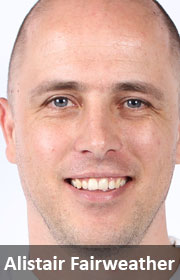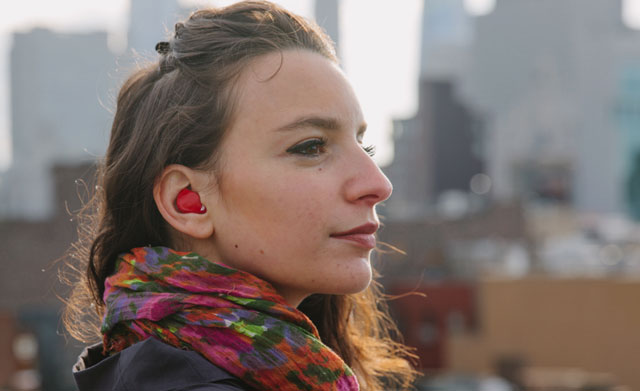 It’s the dream of anyone who has travelled to a foreign country: a device that instantly translates a local’s speech for you while simultaneously translating your own words for them. A new gadget, named the Pilot, claims to do just that.
It’s the dream of anyone who has travelled to a foreign country: a device that instantly translates a local’s speech for you while simultaneously translating your own words for them. A new gadget, named the Pilot, claims to do just that.
The Pilot looks a lot like one half of a wireless headphone set. It connects wirelessly to an app on your smartphone and — if you believe the promotional video — translates a conversation from one language to another in real time.
Andrew Ochoa, one of the Pilot’s inventors, claims he “came up with the idea for a translator when I met a French girl”. While this founding myth is endearingly dorky, any fan of Douglas Adams will recognise the basic idea behind an instant, in-ear translator: the Babel fish.
Regardless of the idea’s originality, Waverly Labs is the first company with the gumption to attempt an in-ear translator. If the product actually launches, that is. All too many independently produced gadgets that looked extraordinary in promotional videos have never lived up to their claims.
The company behind the Zano mini-drone, for example, raised US$3m via Kickstarter and then promptly went bankrupt. Or the Kreyos Meteor, a smartwatch that raised $1,5m via IndieGoGo only to deliver a virtually unusable product 18 months later than promised.
Cynicism aside, the time is certainly ripe for the Pilot. In the last three years, the market for wearables has exploded, with companies like FitBit and Jawbone competing head-to-head with giants like Apple and Samsung.
This market could not have existed 10 years ago. The technology required to make gadgets that non-geeks will actually want to wear dates back to the launch of the iPhone in 2007. Components are now small and energy efficient enough to be squeezed into human-friendly packages without needing to be recharged every few hours.
But the biggest challenge for the team at Waverly Labs will not be the hardware — as tricky as that is to get right. None of the voice recognition or translation technology will run on the device itself, or even the attached app. All the heavy lifting will be happening on powerful servers in the cloud.
The reason for this is simple: the sheer amount of data and processing power required to quickly and accurately understand and then translate human speech exceeds the capacity of any smartphone on the market. That’s why services like Siri, Google Now and Cortana require an active Internet connection to work — they rely on processing in the cloud.
Waverly Labs is selling the promise of instant flirting with the hot foreign guy you just met on the bus in rural Italy. They’re not selling “Oh damn, do I have 3G signal on this Arabic network?” or “Why is this taking five minutes to translate each sentence while I stare at this stranger with an idiotic grin on my face?”
I’m sceptical that Waverly’s cloud services will be able to compete with the likes of Google and Apple. Voice recognition is a hard problem, and translation is an even harder one.

Add that to challenges like background noise, mumbling and regional dialects and you have a recipe for irritation or even disaster. Insults are uncomfortably close to common words in many languages.
I’d like nothing better than to eat my words. If the Pilot is even partially successful, it will change the way we travel and create an entirely new category of gadgets. People like Mr Ochoa and his co-founders push the world forward. We should welcome them, regardless of whether they ultimately succeed. — (c) 2016 NewsCentral Media




